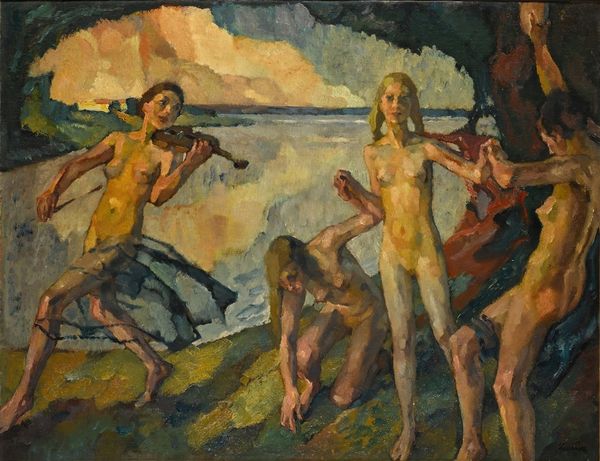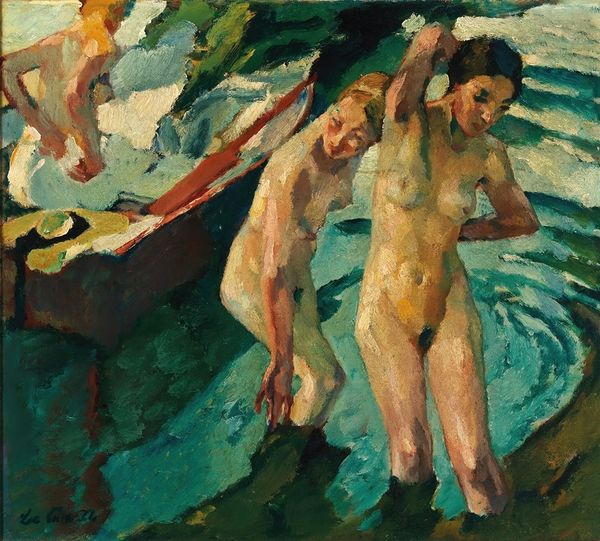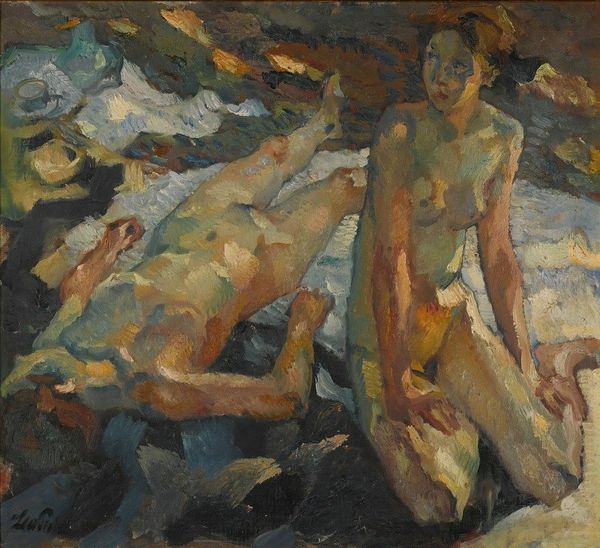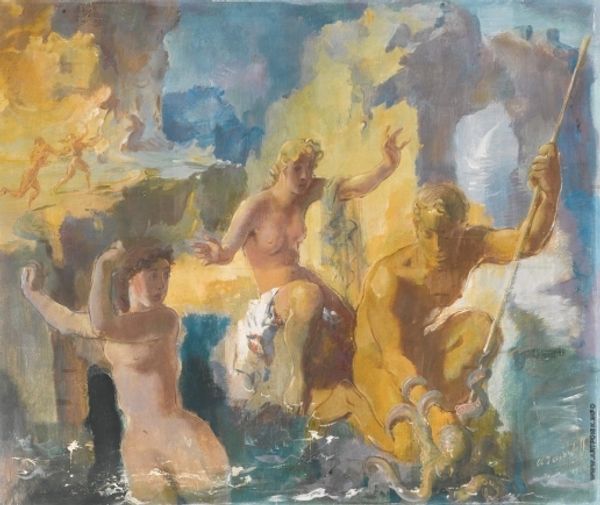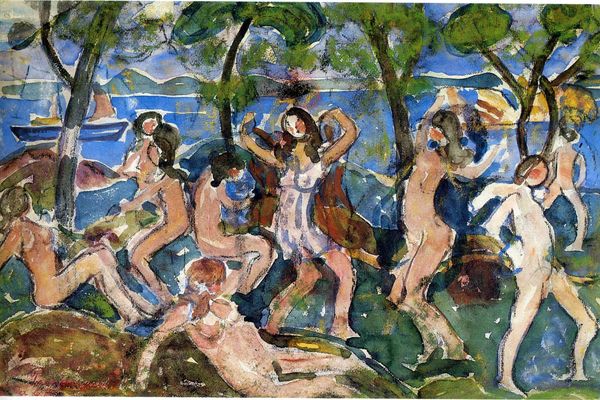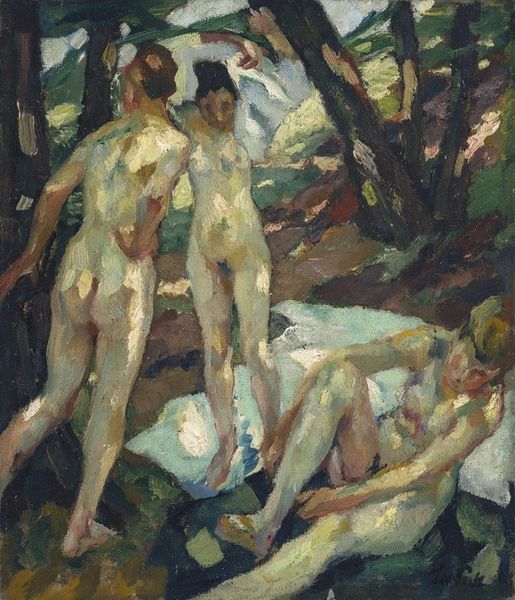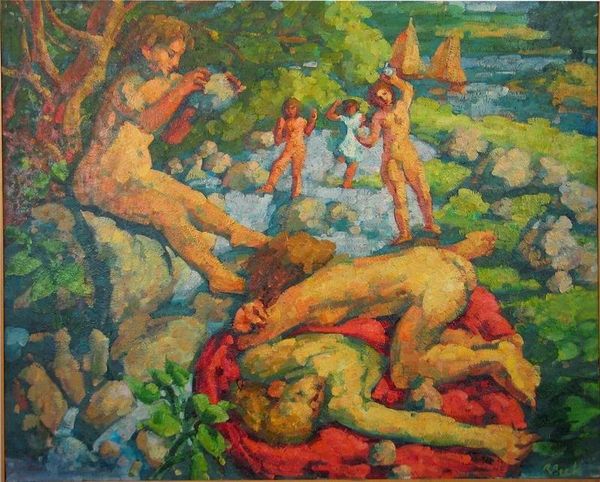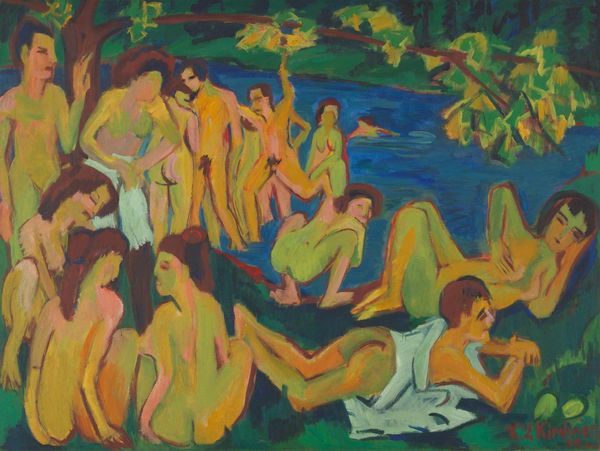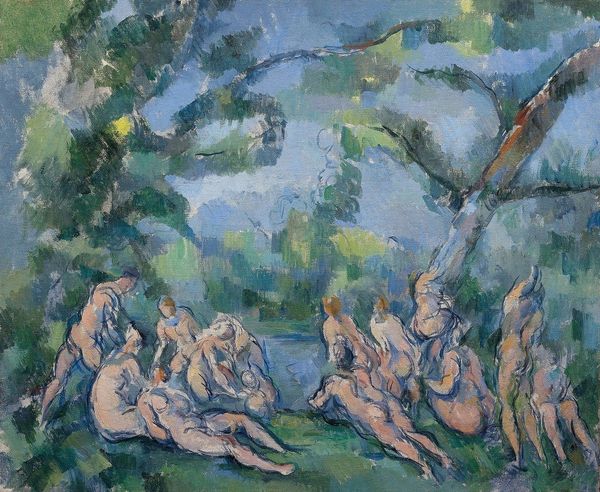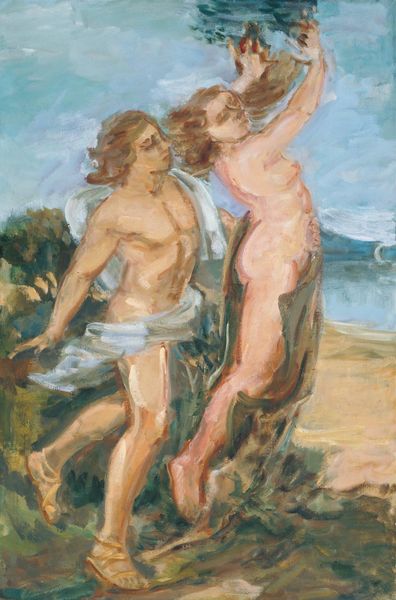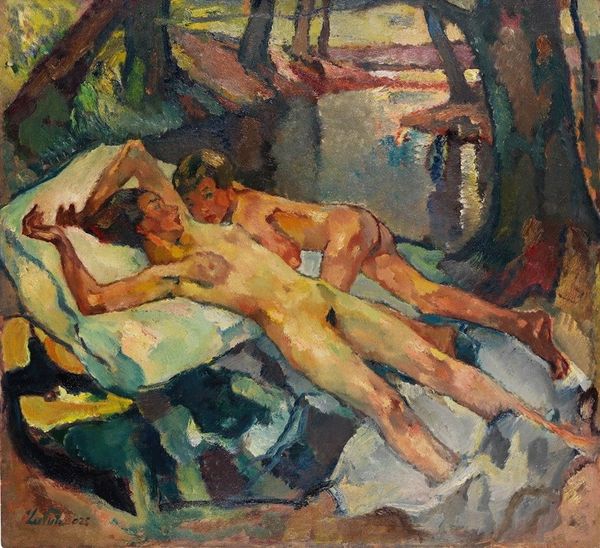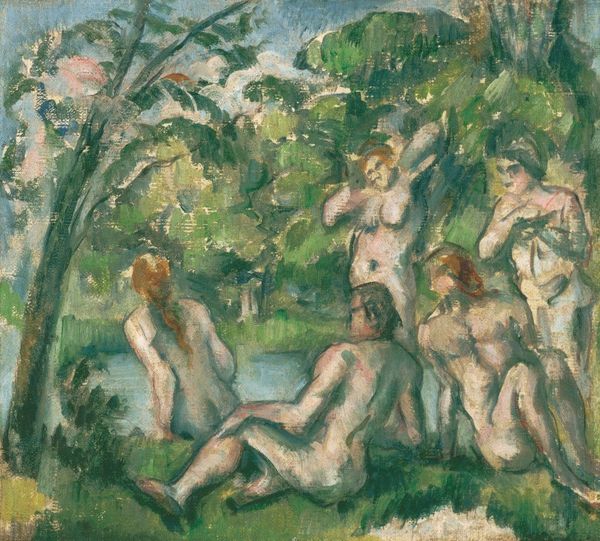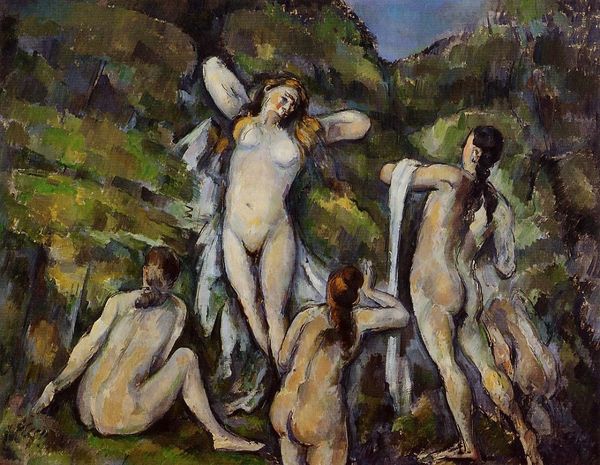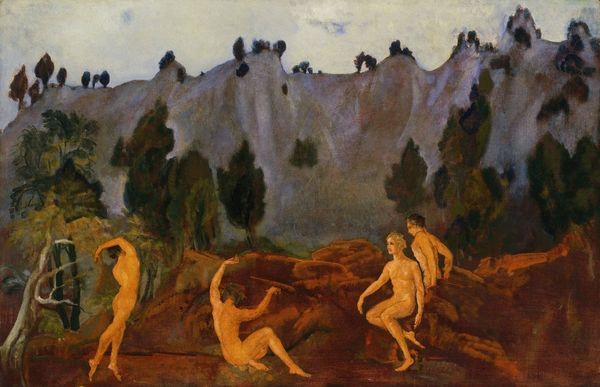
painting, oil-paint
#
figurative
#
painting
#
oil-paint
#
landscape
#
figuration
#
oil painting
#
expressionism
#
genre-painting
#
nude
Copyright: Public Domain: Artvee
Curator: Let's consider Leo Putz's painting titled "Reigen". What's your initial response to it? Editor: It’s definitely energetic. The figures are arranged so dynamically that it gives me the feeling that they’re captured mid-motion, which is intensified by the oil paint’s textural, almost raw application. It all seems very tactile. Curator: The texture definitely lends itself to understanding Putz's broader context. We could position this work within discussions of early 20th century body politics and liberation movements. Notice how the natural setting and the naked figures play on notions of freedom and an idealized return to nature. Editor: It's interesting you mention that idea of return. Looking at it from a purely material standpoint, there’s also this element of return through process. I mean, Putz used very visible brushstrokes, leaving evidence of his process. The layers build up creating a really interesting materiality. Do you think that connects to this concept of ‘going back’? Curator: I think that’s astute. Considering contemporary anxieties about industrialization and alienation, we see artists like Putz grappling with those themes. The raw materiality might suggest an intentional reclaiming of artisanal labor as opposed to machine production. Furthermore, depicting nudity, always political, could be read as a rebellion against societal restrictions, expressing themes like identity and personal liberation. Editor: Right. I was going to say, by focusing on the materiality we can explore the cultural conditions of production and consumption during this period, particularly how the romantic view of nature became something consumed by a rising middle class through art and leisure. The artwork becomes part of a system of commodification. Curator: Absolutely. So while we are viewing a scene that is overtly representing freedom, if we explore the work with that historical and political lens, we see complex conversations around modernity, identity, labor, and the act of looking. Editor: Looking at it all together, what is most impactful to me is the way Putz translated movement to texture and how all of the individual labor culminates into the overall composition. Curator: I would agree that it's a work which embodies many layers of meaning regarding liberation—freedom in form and subject.
Comments
No comments
Be the first to comment and join the conversation on the ultimate creative platform.
